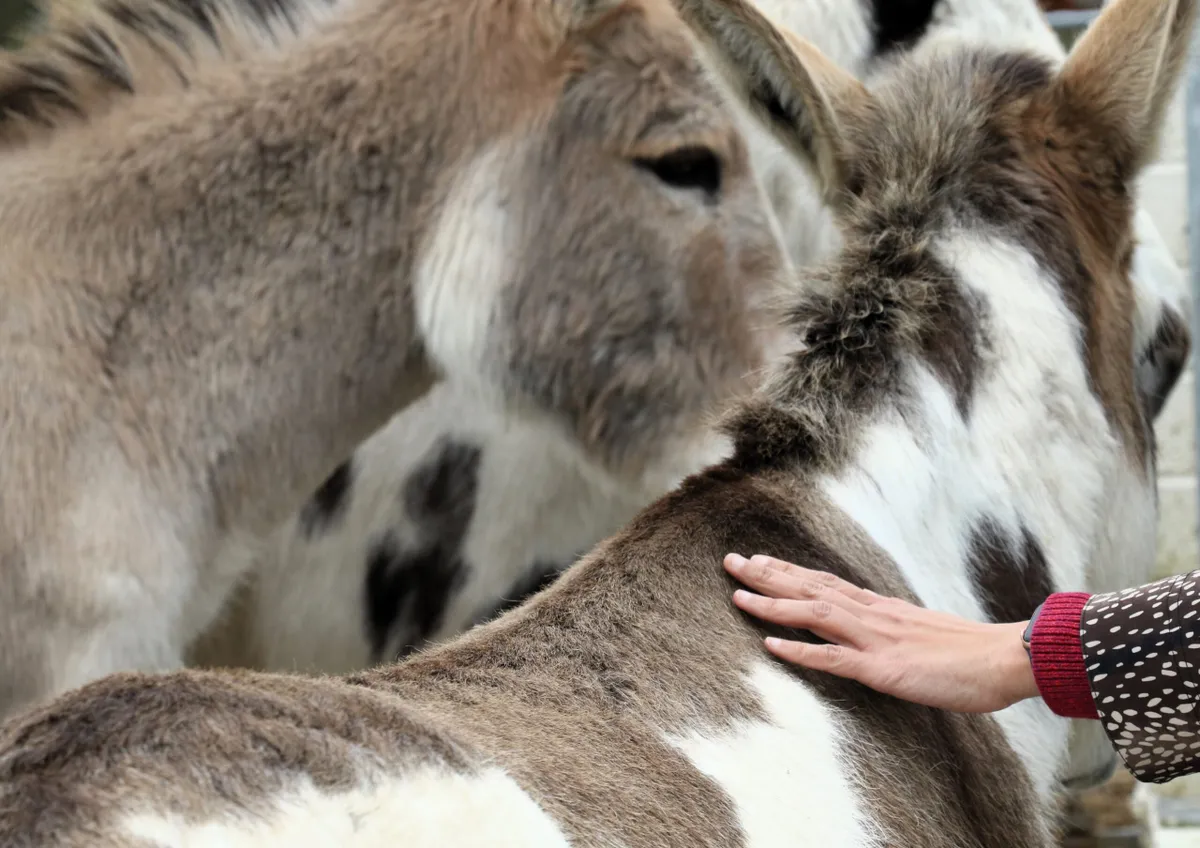Donkeys are social and curious creatures, and these qualities make them wonderful companion animals.
Looking after them well will keep you active and enrich your life. And once you get to know them, you’ll soon be captivated by their endearing nature, says Ben Hart, The Donkey Sanctuary’s behaviour expert.
However, it’s important to make sure you can provide the right living conditions to ensure their mental and physical wellbeing so you have happy, healthy donkeys.
What do donkeys need?
Donkeys need company
Donkeys are incredibly social creatures who are not happy living on their own.
The best company for a donkey is another donkey. Donkeys bond in pairs, forming friendships that often last a lifetime. It’s a joy to provide a home to a pair of donkeys and see how much they support and look out for each other.
Losing a life partner can be very distressing for a donkey. They need to be given time to grieve and supported through it. Knowing how to care for the surviving donkey, being there for them and giving them the comfort they need can help them avoid developing a stress-related condition called hyperlipemia.
Donkeys need shelter and dry areas
Donkeys' coats are less water resistant than horses, and their feet absorb water easily, which can lead to foot conditions such as laminitis and seedy toe. However, by providing a field shelter or open stable and hard standing for the donkeys to access 24/7, you can help them to stay dry and get out of the mud.
Being able to provide this shelter and grazing is essential for their wellbeing, it also demonstrates that you are a responsible owner who cares about their comfort.
Donkeys need grazing and space
It is important donkeys have enough space to graze and play. We recommend a minimum of 0.5 acres of grazing land per donkey, which means one acre for a pair. Here is some advice on how much land is needed for donkeys and how to manage that land.
Donkeys need attention and enrichment

Like all pets, donkeys need commitment and daily interactions. This includes tasks like maintaining their living spaces, ensuring proper nutrition, grooming, hoof care, and offering mental stimulation and a stimulating environment to thrive.
Enrichment plays a vital role in the well-being of donkeys, offering them valuable chances to engage with their surroundings, exercise their decision-making abilities, and stay mentally stimulated. This proactive approach not only staves off boredom but also contributes to their overall health by promoting regular exercise and maintaining a healthy weight. It also makes looking after them an incredibly rewarding and rich experience.
Most donkeys naturally love human contact. However, it is worth remembering that with a nervous or fearful donkey it will take time and commitment to win them over but when you do, it will be well worth the effort.
Donkeys need regular veterinary, dental and foot care
Looking after a donkey means regular vet visits and vaccinations, a farrier visit every 8-10 weeks, and a visit from an equine dental technician at least once a year. The costs of looking after a donkey do add up but as with any animal, making sure they have good nutrition, exercise, a stimulating environment and generally looking after their wellbeing will reduce the need for expensive interventions.
Have you got time and space for a couple of donkeys?
If you willing to learn about donkeys and how donkeys are different from horses in just about every way, donkeys can enrich your life enormously.
For those who think they may have the time, space and commitment to offer a caring home for two or more donkeys in the UK, The Donkey Sanctuary’s rehoming scheme offers people the chance to be a Donkey Guardian. To find out more, please visit the charity’s website here.
Donkeys can become a huge part of your life. They can provide hours of entertainment and make you smile every day. However bear in mind donkeys can live for a long time!
The Donkey Sanctuary is the world’s largest equine welfare charity. Our vision is a world where donkeys and mules live free from suffering and their contribution to humanity is fully valued. We run 10 sanctuaries around the UK and Europe, giving lifelong care to more than 7,000 donkeys and mules. Our hospital treats sick donkeys and trains vets both nationwide and worldwide. Our donkey-assisted activities programme supports the development of people's life skills and wellbeing by connecting with our donkeys on an emotional and physical level.